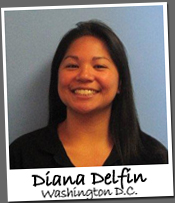I remember growing up in San Jose, California with my family. With four children in the family, my parents had to work very hard to support us. As a young Filipino youth living in a community with gangs and violence, I was fortunate to have the Filipino Youth Coalition (FYC). It served both as an afterschool haven and a second family during my late middle school and high school days. Led by Filipino college students and young adults, FYC placed a strong emphasis on teaching us about Filipino heritage and identity. Once a week, students across the city would get together and learn more about our Filipino culture. We explored Filipino history, current events and shared our dreams for the future. After becoming more aware of the history of my people, I was thankful and grateful for those who came before me and felt blessed to live my life. Equally important, FYC provided me with positive role models. I considered our mentors part of my extended family. We all shared a similar experience and they understood my identity formation. Growing up as a first generation Filipino-American, it was challenging to strike a balance between becoming Americanized and honoring the Filipino traditions. As much as FYC was a safe and nurturing place to hang out after school, I enjoyed it because it made me feel part of something that was bigger than me and bigger than my school. FYC instilled me with a sense of curiosity and opened my eyes to various kinds of discrimination across the world. I knew that advocating for social change would always be an important part of my life. FYC empowered me at the perfect time. When I was getting ready to embark on my college career, I remembered what I learned through the program. I had an identity, was proud of my culture, and ready to make my own path. Without FYC, I would not have had the foundation to become passionate about social activism. I knew that I wanted to stand up not just for Filipinos but for all minority groups. These ideas followed me through college. I remember the May Day protest – hundreds of thousands of people marched the streets of Los Angeles demanding equal rights. In graduate school, my budding interest in afterschool grew out of my passion for social justice for all. I switched my focus to helping advocate for minority students in underserved neighborhoods. I decided to focus on afterschool because I remembered the positive and life-changing experience that FYC had on me. I was convinced those types of experiences should be available to all students. I wrote my thesis on the asset approach to viewing a community to find what resources were available so that I could determine how to make afterschool programs possible anywhere. Every student deserves a secure, reliable place to attend after the school day ends to stretch their minds, bodies and souls. Never underestimate the power of an afterschool organization. After all, it is through my own afterschool experience that I was empowered to become an active agent in making a difference for others. |








